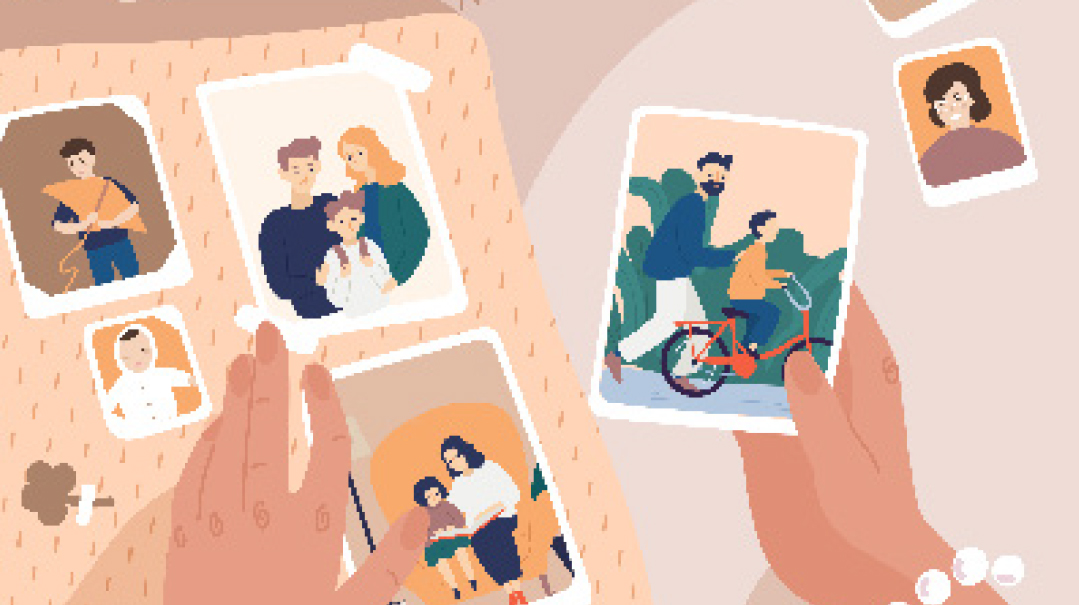Brushstrokes
| August 28, 2019“Don’t call my parents!” she says. “Don’t! You don’t — you don’t know anything! Why do you care?”

She looks at me through narrowed eyes, peering upward over the rim of her glasses. She scrunches her shoulders forward. Then she thinks better of it and straightens up, folding her arms across her chest. She crosses one leg over the other, revealing the company name on the side of her shoe. Tommy Hilfiger, I make out.
“Yeah? What do you want?” she says gruffly. Not a way to talk to a teacher, never, but Debbie* has a different code of conduct.
“Relax, Debbie. I just wanted to thank you. I heard you were the driving force behind the engagement party the class prepared for me today.”
She stares at me. She looks confused, but I forge on.
“I’m thinking, Debbie. I can imagine you being a great manager of some kind of business. You’re so organized. I heard you were the one who started the chain call to wear a white shirt today for the party.” I pause for her affirmative nod, but there is none forthcoming.
“And that you collected the money for the gift for me. You’re just amazing.”
Still she stares at me, her small brown eyes narrowing. I flinch inwardly.
“Also, on top of everything, I heard this gigantic Mazel Tov banner was painted at your house! Stunning, simply stunning. I just think you’re so talented! I can totally see you in ten years from now organizing stuff, arranging events. Giving art lessons to kids on Sundays. Maybe selling your paintings, who knows?” I smile brightly.
Those eyes. Can she please say something? Anything?
“That’s all I wanted to say, Debbie. I’m impressed by you. You can go back to class now.” Dragging her feet, she does just that.
I feel very old and tired. I go sit in the teachers’ lounge and drink a coffee, without sugar, until the principal comes to shoo me into class.
I’m all of a first-year teacher, full of insecurities and questions, armored only by my blustering self-confidence. Forgive me for making mistakes. Love me for trying not to.
From all the parallel eighth-grade classes in the school, Debbie had to be my student. No one took the time to brief me about her. The school was big, its problem stories many. No one had the time to sit with me and explain what having Debbie in my class four days a week, four hours each day would entail.
But I know what I’ve seen. I think back to all the incidents:
Debbie comes to class with reddened, puffy eyes, and my heart twists. But then I hear the vile curses she mutters under her breath whenever I look in her direction during class. The kind of words you wouldn’t want your kid to hear, let alone say. Responding to or disciplining her about these dirty slurs only spurs a slew of nearly violent behavior.
Her report card: Conduct: NI. Effort: NI. Attitude toward schoolwork: NI. Works and plays well with others: NI. Classroom behavior: NI. Handwriting: NI. Responsibility: NI. Needs improvement. Desperately.
I try calling Debbie over to speak with her, the day before we send home report cards, but she refuses to make eye contact, shrugs at my offers of tutoring. It’s only when I mention speaking to her parents that she straightens, makes eye contact. “Don’t call my parents!” she says. “Don’t! You don’t — you don’t know anything! Why do you care?”
When I meet her mother at the PTA meeting, I see her posture is like her daughter’s. She avoids making eye contact with me, snatches her daughter’s report card and graded midterm exams, and mumbles her thank yous before fleeing the school building.
Some time later, I’m in the school parking lot retrieving a box of prizes for my students from the principal’s car trunk. A gleaming Highlander is parked nose to nose with the principal’s car. I wonder whose it is. Then I hear footfalls approaching. I steal a peek and spot Debbie. Oh, right, leaving early for a dentist appointment. A well-groomed man is leaning on the car calmly, but he goes ballistic when he sees her.
“Debbie! Look at you! You’re filthy! You can’t keep clean for three hours? How am I supposed to take you anywhere? Fourteen years old, and you act more like a four-year-old!” You’ll never amount to anything!”
The voices fade after a car door slams and the motor revs up, and then I remember the liquid Wite-Out spilling down her uniform skirt in the middle of class that morning. Poor, poor Debbie! I have exactly 30 seconds before I need to return to the classroom, so I do my best to blink back my tears, but I can’t stop shivering all day.
When I shakily report this incident to the principal, a look of resigned pain flits across her face and she nods gravely. “It’s a difficult story. We know about it. A number of rabbanim and askanim are involved, trying to help.”
The school redoubles its efforts to help the family, involving community askanim in the matter, issuing ultimatums regarding family therapy. I’m instructed to stay out of it; my involvement would only complicate matters. But it’s so painful to watch my student suffer.
In the classroom, I’m at a loss. All my attempts to be a great teacher are DOA.
I can try, though. I smile at her. Offer my love. A discreet pat on the back. Debbie rebuffs all of my attempts. I dig up reasons to compliment her, but it’s difficult for me to keep trying when all of my overtures are rejected.
Her impudence often leaves me in tears. Her rudeness often leaves me brokenhearted. And once, her audacity even leaves me with a wet blouse. (I won’t retell that episode.)
The principal tries to be supportive of the challenge, but usually she sighs and says, “Thank you for bearing with us, and with their issue. Thank you.”
Gruesome pictures depicting Debbie’s future paint giant canvases in my mind. A psych facility? The street? Gangs and drugs? Heaven forbid.
At the tail end of the school year, I get engaged. I have no idea how or when, but Debbie starts a chain call to instruct the class to wear white shirts in my honor, and to bring money for a gift. She invites some girls to her house to help paint a huge colorful Mazel Tov banner emblazoned with my students’ excited wishes. Debbie’s mother used to attend a painting class and they owned sophisticated art supplies.
That day, finally, I manage to say something nice to her. It comes out sounding lame, but at least I tried imparting the message to the girl whom I have not managed to connect with at all, yet love so fiercely.
I get married and move countries. I never teach again.
Seven years later, I read a magazine. Debbie’s name is printed boldly on the top of the column’s page. An interview with a young entrepreneur. She has opened a Sunday art program for five- to eight-year-old girls.
There aren’t many details about her current life, but there are some pictures of some of her students’ artwork and of a cozy-looking basement art studio. She describes how she started going to intensive art classes back in the summer after eighth grade, and that’s where it all began….
I freeze, remembering my words to Debbie. Was it my influence, my suggestion? I would never know.
But if I’d understood how my words might echo, I’d have said these words to 24 more girls, every single day of the school year.
*Name and details have been changed
(Originally featured in Family First, Issue 657)
Oops! We could not locate your form.













